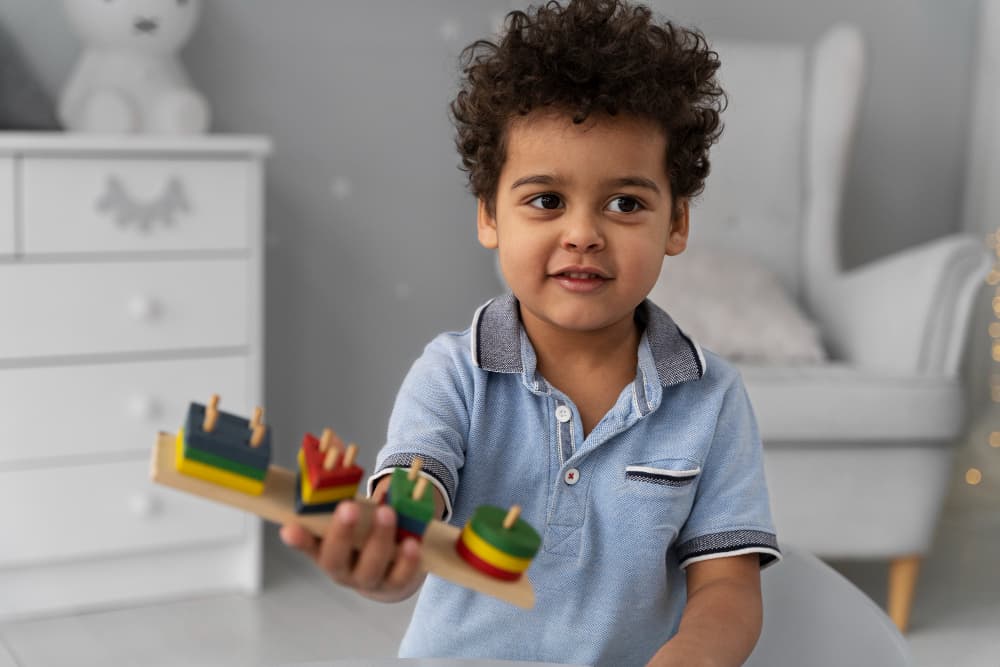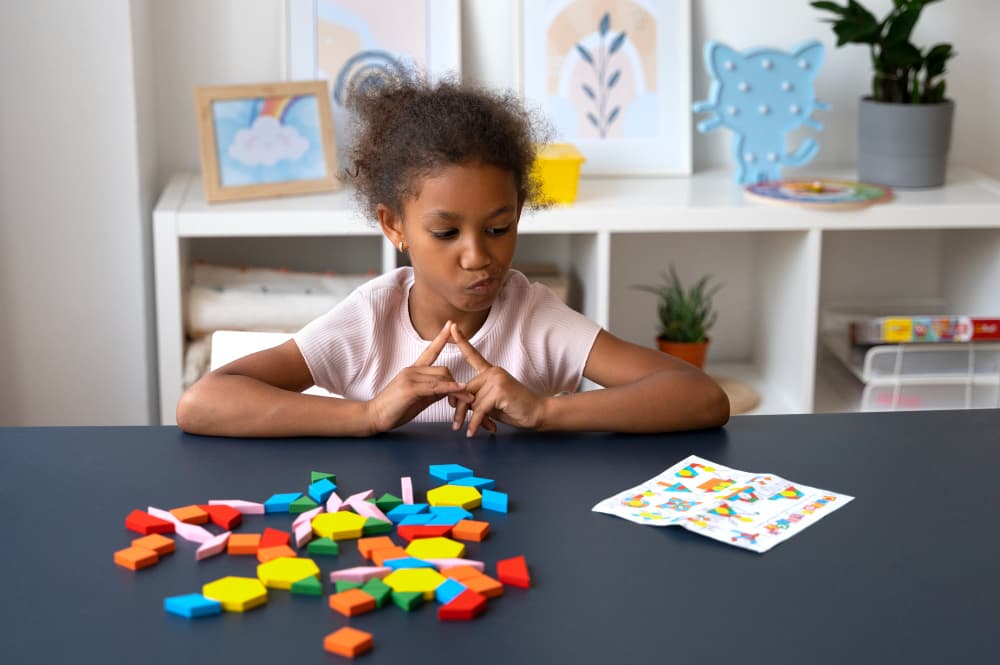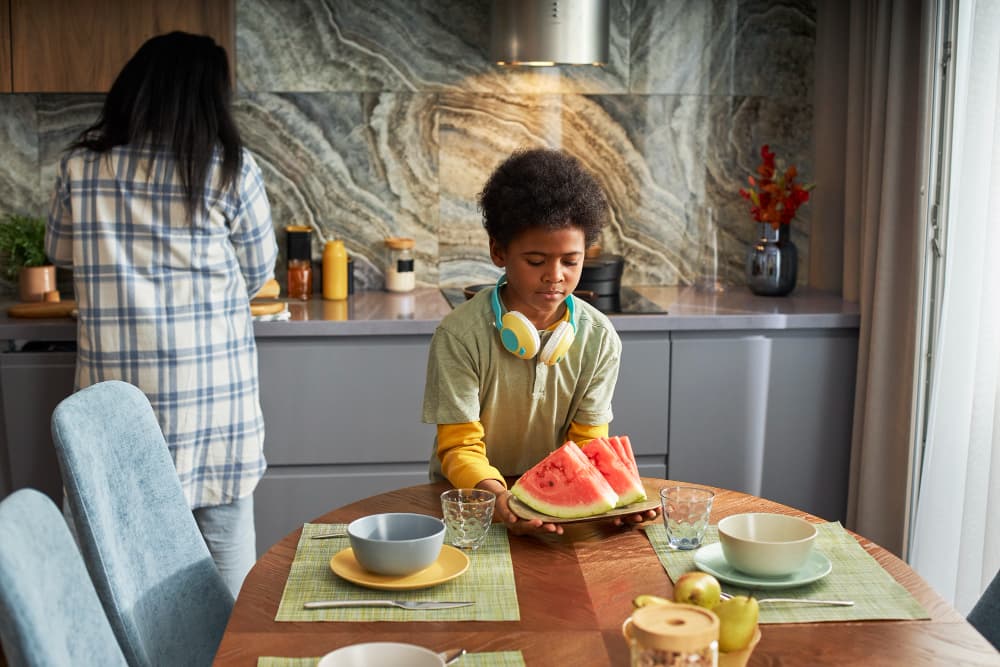How to be a Better Mom: 15 Practical Tips to Improve Your Parenting Style
Have you ever wondered what makes a good mom or how you can become an even better one? The journey of raising children is filled with joys, challenges, and countless opportunities for growth. You’re always looking for a way to become better, and luckily, I can help you.
In this article, I’ll give you 15 tips and tricks that you can try to improve your parenting style. As you follow them, you’ll get to spend quality time with your child, nurture their self-esteem, and strengthen your relationships.
Contents
- 1 15 Practical Tips to Improve Your Parenting Style
- 1.1 1. Know Your Child’s Unique Needs
- 1.2 2. Practice Empathy and Patience
- 1.3 3. Communicate Openly and Honestly
- 1.4 4. Spend Quality Time Together
- 1.5 5. Set Clear Boundaries and Expectations
- 1.6 6. Model Positive Behavior
- 1.7 7. Encourage Decision-Making and Problem-Solving
- 1.8 8. Support Their Interests and Passions
- 1.9 9. Prioritize Self-Care
- 1.10 10. Seek Support and Build a Community
- 1.11 11. Encourage Emotional Expression
- 1.12 12. Create Routine and Stability
- 1.13 13. Build a Love for Learning
- 1.14 14. Teach Responsibility
- 1.15 15. Celebrate Achievements, Big and Small
- 2 How to Handle Common Parenting Challenges
- 3 Final Thoughts
15 Practical Tips to Improve Your Parenting Style
Parenting is a journey full of learning and growth. Here are some practical tips to help you connect with your child and create a loving, supportive family environment.
1. Know Your Child’s Unique Needs

Understanding what makes your child unique is key to being a great mom. Take time to observe how they interact with family members, friends, and the world around them.
Every child has their own personality, learning style, and interests. By paying close attention, you can tailor your parenting approach to support their strengths and address their challenges.
This might mean finding creative ways to engage a child who learns visually or giving extra support to a child who’s shy in social settings. When your child feels understood, it strengthens your relationship and promotes their confidence and growth.
2. Practice Empathy and Patience
As Becky Kennedy says, there’s no such thing as a perfect parent, and we all lose it sometimes. However, two elements crucial for how we raise kids and even how we get over the not-so-stellar parenting moments are empathy and patience.
Empathy is key to helping your child understand their own feelings and those of others. Practice putting yourself in their shoes, especially during conflicts or emotional moments. This not only helps them feel valued and heard but also teaches them to be compassionate toward others. And if we can have empathy, we can teach empathy.
Patience is also critical, especially in challenging situations or when milestones seem difficult to achieve. By modeling calmness and understanding, you create a safe environment where your child can express themselves freely and work through their emotions constructively.
3. Communicate Openly and Honestly
You must have open communication with your child if you want a healthy and strong relationship. Encourage your child to express their thoughts and feelings by asking open-ended questions and actively listening without judgment.
This kind of dialogue builds trust and helps your child feel secure in sharing their experiences, whether they’re dealing with a minor school issue or more significant life challenges.
Honest conversations also provide opportunities to discuss values, expectations, and boundaries, ensuring your child understands your perspective while feeling respected in their own right.
4. Spend Quality Time Together

Spending quality time with your child can make all the difference in their development and your relationship. This isn’t just about the quantity of time but the quality of your interactions. For instance, you need to plan activities that your little one loves, like playing a game or cooking together.
Being present and giving your undivided attention shows that you value your time together. These meaningful interactions help foster a strong, positive bond, boosting your child’s self-esteem and reinforcing their sense of belonging within the family.
5. Set Clear Boundaries and Expectations
Establishing clear boundaries and consistent expectations helps your child understand what is acceptable and what is not. This structure provides a sense of security and order, which allows your child to explore their world confidently while knowing their limits.
Clear expectations also help you enforce rules consistently, reducing confusion and potential power struggles. When boundaries are communicated effectively, they help your child make informed choices, understand consequences, and develop self-discipline.
However, don’t translate this into being a strict parent. Rules and boundaries are important, but you need to give your child space for growth and learning.
6. Model Positive Behavior
One of the most impactful ways to teach your child is by example. Every day, through your actions and words, you demonstrate important values like kindness, respect, and responsibility.
Consistently modeling positive behaviors helps you provide your child with a blueprint for how to treat others and handle life’s challenges. This approach helps cultivate a supportive and loving home environment where positive behavior is not only expected but naturally adopted.
Over time, these observations shape your child’s character and interactions with the world.
7. Encourage Decision-Making and Problem-Solving

Empower your child by providing them with opportunities to make decisions and solve problems independently. This not only boosts their confidence but also prepares them for future challenges. Encourage them to weigh the pros and cons, consider potential outcomes, and learn from their mistakes.
As you guide them through this process, you help them develop critical thinking skills and resilience. Even small decisions, like choosing their own clothes or planning a weekend activity, contribute to their sense of autonomy and responsibility.
8. Support Their Interests and Passions
Encouraging your child to pursue their interests and passions can improve their self-esteem and help them develop life skills. Whether it’s sports, arts, academics, or another hobby, showing genuine interest in their activities and providing support can make a world of difference.
Attend their games, help them gather materials for a project, or simply listen as they share their enthusiasm. This supportive environment validates their individuality and helps them build a strong sense of identity, confidence, and purpose.
9. Prioritize Self-Care
Taking care of yourself is essential to being a good mother. When you prioritize self-care, you’re better equipped to handle the demands and stresses of family life. Make time for activities that replenish your energy and nourish your spirit, whether it’s reading a book, engaging in a hobby, or enjoying a quiet moment alone. You may even want to treat yourself to a once monthly Swedish Massage in Hamilton Township, NJ (or wherever is nearest) to help keep your body and mind relaxed when you are feeling the stress build up again.
Remember, self-compassion is critical; by caring for yourself, you’re setting a positive example for your child and ensuring you have the emotional and physical resilience to be fully present for your family.
10. Seek Support and Build a Community
Don’t underestimate the power of a support network. Connect with other moms, parenting groups, and community resources to share experiences and gather advice. Engaging with others who understand your journey can provide invaluable insights and emotional support.
Building a community not only helps you feel less isolated but also enriches your parenting strategies with diverse perspectives. Knowing you have a network to rely on can boost your confidence and provide comfort during challenging times.
11. Encourage Emotional Expression

Help your child articulate their emotions by encouraging open discussions about how they’re feeling. Create a safe space where they feel comfortable sharing their thoughts without fear of judgment or dismissal.
This open dialogue can be built through activities like daily check-ins or storytelling, where both you and your child express your daily highs and lows. By validating their emotions and showing empathy, you teach them that feelings are natural and manageable.
12. Create Routine and Stability
Establishing daily routines provides a sense of security and predictability in your child’s life. This structure helps manage expectations, reduces anxiety, and nurtures a sense of order.
Consistent schedules for meals, homework, and bedtime are critical aspects of a routine that supports a stable environment. Routines help children know what to expect, making transitions smoother and enabling them to focus more on growth and learning rather than on uncertainty.
Enrolling your child in a school or a Day Care in Dallas Arts District, TX, or elsewhere, at the right age can also be a great way to introduce structure. A well-chosen daycare can provide a nurturing space where children can develop social skills, learn new things, and build emotional resilience. If both parents work full-time, daycare can offer a steady routine with planned activities, meals, and rest, helping children feel balanced and secure throughout the day.
A predictable environment helps children develop time management skills and self-discipline, ensuring they have dedicated time for both responsibilities and leisure. This stability can improve their overall well-being and academic success.
13. Build a Love for Learning
Build curiosity and a love for learning by exploring new topics and experiences together. Show enthusiasm for learning by engaging in activities such as visiting museums, conducting simple at-home experiments, or delving into books on a wide range of subjects.
Encourage reading, creative activities, and exploration, showing your child that learning is a lifelong adventure that extends beyond the classroom. Highlight the wonders of discovery and innovation, and celebrate moments of insight.
By modeling a curious mindset, you inspire your child to approach the world with an open mind and a thirst for knowledge, ultimately fostering critical thinking and adaptability in an ever-changing world.
14. Teach Responsibility

Assigning age-appropriate chores and responsibilities helps your child develop a sense of accountability and independence. Start with simple tasks and gradually increase complexity as they grow into teenagers, teaching them valuable life skills such as time management, organization, and self-reliance.
Explain the purpose and benefits of each task, linking them to the overall functioning and well-being of the family unit. This practice not only contributes to the smooth running of the household but also empowers your child with a sense of accomplishment and pride in their contributions. Doing this can help your child become a reliable and conscientious adult.
15. Celebrate Achievements, Big and Small
Acknowledging and celebrating your child’s achievements, whether they’re big milestones or small victories, is crucial for their self-esteem and motivation. Take the time to recognize their efforts, whether they’ve aced a test, mastered a new skill, or demonstrated kindness.
Celebrations can be as simple as verbal praise, a written note of acknowledgment, or a small reward. These moments of recognition reinforce the value of hard work and perseverance, motivating them to continue striving for success.
By highlighting their capabilities and progress, you encourage a growth mindset, where they learn to view challenges as opportunities for development rather than obstacles.
How to Handle Common Parenting Challenges
Handling the ups and downs of parenting can be daunting, but resilience and adaptability can help you manage these challenges effectively. Here are several strategies to consider:
- Stay Flexible: Parenting doesn’t come with a one-size-fits-all manual. Be open to adjusting your approach as your child grows and their needs change. Flexibility helps you adapt to new situations with ease.
- Manage Stress: Practice stress-relief techniques such as deep breathing, exercise, or meditation to maintain a calm and balanced perspective. Remember, your own feelings can influence your child’s, so maintaining your calm can help them stay calm, too.
- Focus on Solutions: When problems arise, focus on finding solutions rather than dwelling on the issue. Collaborate with your child to find creative ways to resolve conflicts or challenges, reinforcing teamwork and problem-solving skills.
- Seek Professional Support When Needed: Don’t hesitate to seek help from parenting groups, counselors, or family therapists if challenges become overwhelming.
- Understand Developmental Phases: Understanding the different developmental stages can help you respond appropriately and with empathy, easing transitions and reducing frustration for both you and your child.
Final Thoughts
Being a parent is a rewarding journey filled with both challenges and joys. Applying the tips I gave you above can improve your parenting style and create a supportive and loving environment for your child.
The most important things to do are to focus on spending quality time together, encourage open communication, and model positive behavior.
Remember, small actions can make a big difference in your family’s life. As you grow alongside your child, you’ll not only become a better mom but also strengthen the bond you share.
Find out more tips and tricks on how to become a better parent on my website!

